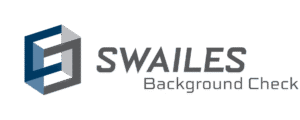With so many advanced screening tools available today, from criminal background searches to credential verifications, some employers wonder if reference checks are still worth the time.
The answer is yes. When done right, reference checks provide insights you simply can’t get from databases or documents alone.
Why Reference Checks Still Matter
Reference checks help employers look beyond the résumé. They give real-world context on how a candidate has performed in past roles and how they might fit into your workplace.
- Did they collaborate well with colleagues?
- Were they reliable under pressure?
- Did they leave their last position on good terms?
These details can confirm strengths, reveal potential red flags, and highlight whether the candidate is a good fit for your organization’s culture.
Reference Checks vs. Verifications
It’s easy to confuse reference checks with verifications, but they serve different purposes:
- Verifications confirm facts like job titles, dates of employment, and degrees earned.
- Reference Checks go deeper by gathering feedback from former supervisors, colleagues, or mentors about how the candidate actually performed.
Both are valuable, but reference checks bring the human perspective that data alone cannot.
What Employers Learn from Reference Checks
A well-structured reference check can provide insight into:
- Work ethic and reliability.
- Teamwork and communication skills.
- Adaptability and problem-solving.
- Professionalism and integrity.
- Overall reputation within the workplace.
These qualities often determine success in a role as much as technical skills.
Compliance and Best Practices
Like all employment screening, reference checks must be handled carefully. Employers should:
- Follow FCRA guidelines when using a Consumer Reporting Agency (CRA).
- Ask consistent, job-related questions for each candidate.
- Document responses fairly and avoid discriminatory practices.
- Use a structured process to improve reliability and reduce bias.
Challenges of Reference Checks
Of course, reference checks aren’t without hurdles. Many organizations today provide only limited information such as job title and dates. Others may be difficult to reach in fast-paced industries. And unstructured conversations can sometimes result in biased or unverified information.
Best Practices for Effective Reference Checks
Employers can overcome these challenges with a focused, compliant process:
- Partner with an experienced CRA like Swailes to conduct checks professionally.
- Ask open-ended but role-relevant questions.
- Reach out to multiple references to balance perspectives.
- Combine results with other screening tools for a well-rounded hiring decision.
Reference checks remain a powerful tool in the hiring process. They bring context, clarity, and confidence, helping employers avoid costly mistakes while identifying the candidates most likely to succeed.
Need Help with Background Checks or Compliance?
Whether you’re hiring new talent or updating your screening processes, the Swailes Background Check team is here to help. From criminal background checks and FCRA compliance to drug testing, employment and education verifications, MVR reports, credit history reviews, and Social Security number validation, we provide fast enrollment and expert support every step of the way.
Contact us today to streamline your screening process with confidence.

